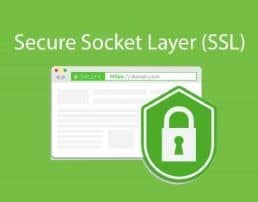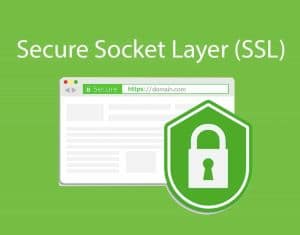Secure your Subdomains with a Wildcard SSL Certificate


SSL (Secure Socket Layer) certificates are a prominent feature of cyberspace in 2021. Both regular and wildcard certificates are essential for business survival online.
Large businesses are secured by wildcard SSL certs where small businesses leverage regular SSL certificates.
COVID-19 pandemic has spiked the sale of SSL certificates globally. By 2024, CA (Certificate Authority) market is expected to increase by $114 million.
Never before in the history of mankind have businesses relied so heavily on an online medium.
Since the pandemic has shifted the medium of business, we need to stay updated with security protocols like Wildcard SSL certificates.
So, let us look at them:
What is a Wildcard SSL certificate?
A wildcard SSL certificate is used to encrypt the primary domain and its unlimited subdomains to one level depending on its type.
Wildcard SSLs are cheaper than regular SSL certs because users need not pay separately for the number of subdomains attached. The payment is made for a single certificate only.
Wildcard SSLs are easy to manage because all the subdomains are displayed on one dashboard.
In a wildcard SSL, a user does not have to file a separate Certificate Signing request for every URL. All the subdomains can be managed from one dashboard only.
Types of Wildcard SSL certificates?
1. First Level Wildcard SSL certificate
This type of wildcard SSL can protect subdomains to the first level. This is the most common wildcard SSL cert used across domains.
For example: if a website’s URL is https://www.shuger.com, then a first-level wildcard can only protect a subdomain for blog.shuger.com but not blog.read.shuger.com.
Generally, websites only have level one subdomains to protect, which is why a first-level wildcard SSL cert does well for them.
If you are not a bank or financial body, first-level wildcard SSL is your best bet.
2. Multi-Level Wildcard SSL certificate
A multi-level wildcard SSL certificate protects a primary domain and its subdomain on all levels.
Coming back to the example mentioned previously, a multi-level wildcard SSL certificate can protect both blog.shuger.com and read.blog.shuger.com.
Although businesses rarely use these certificates, financial institutions like banks are benefited from them immensely.
However, an extended validation feature is absent in these certificates because of a shared private key across all servers.
Wildcard is for ecommerce, or enterprises that are running on multi level subdomains and domains.
Decoding the need for a Wildcard SSL certificate
If you are a small business that is willing to expand shortly then, a regular SSL certificate cannot cater to your future needs.
Since businesses are done keeping the prospects in mind, investing in a wildcard SSL will make your expansion easier.
You won’t have to buy a separate SSL certificate for every additional subdomain, as a wildcard will cover all your subdomains (even the ones you haven’t created yet).
By having a wildcard SSL, you will save yourself from the hassle of managing multiple SSL certificates and save bucks substantially.
Features of a Wildcard SSL certificate
● A wildcard SSL comes with a strong encryption of 256 bits and a 2048-bit RSA industry-standard key.
● Wildcard SSL certificates can protect unlimited first-level subdomains offering an equal amount of protection to all.
● Users do not have to issue separate certificate signing requests for each subdomain.
● All the subdomains can be managed under one dashboard.
● Users do not have to worry about separate subdomain expiry.
● Users only have to pay one time for the certificate and not for each subdomain separately.
Drawbacks of a Wildcard SSL certificate
● Wildcard SSL certificates can only provide first-level protection to a domain and its subdomains. Users need to upgrade it to get multi-level subdomain protection.
● Wildcard SSLs do not have an Extended Validation certificate because they share a private key across all subdomains, which in case of a breach can make the certificate ineffective.
● Wildcard SSL does not validate each subdomain compared to other types of SSL certificate (EV SSL).
● If a hacker gets control of a private key, all subdomains will be vulnerable.
- If you have multiple subdomains installed on different servers and handled by different persons, there may be a chance of unauthorized access of a private key by an unknown person.
To Conclude
Wildcard SSL certificates are helping businesses to thrive in the online world full of cybercrimes.
Amidst the COVID-19 pandemic, more businesses are now moving online than ever before, which is why acquiring cybersecurity knowledge is paramount.
No matter whether you are a small business catering to a handful of customers or a large firm targeting masses, you must know which security protocol suits your business.
Choosing the appropriate wildcard SSL is pivotal for your business’s success. It will help you expand your business in a budget-friendly manner and protect you from the evil eyes of cybercriminals.
So, choose the most appropriate wildcard SSL certificate for your website today.




